Phonics Skills Normal Worksheets for Ages 3-7
60 filtered results
-
From - To
Unlock the power of reading with our Phonics Skills Normal Worksheets for Ages 3-7. Designed to lay a solid literacy foundation, our engaging worksheets cover essential phonics concepts such as letter sounds, blends, and word formation. Each activity is crafted to provide children with interactive and enjoyable practice, helping them to develop critical thinking and fine motor skills. Perfect for early learners, these resources foster a love for learning while building confidence in reading and writing. Give your child the tools they need to succeed in their early educational journey with our expertly designed phonics worksheets.
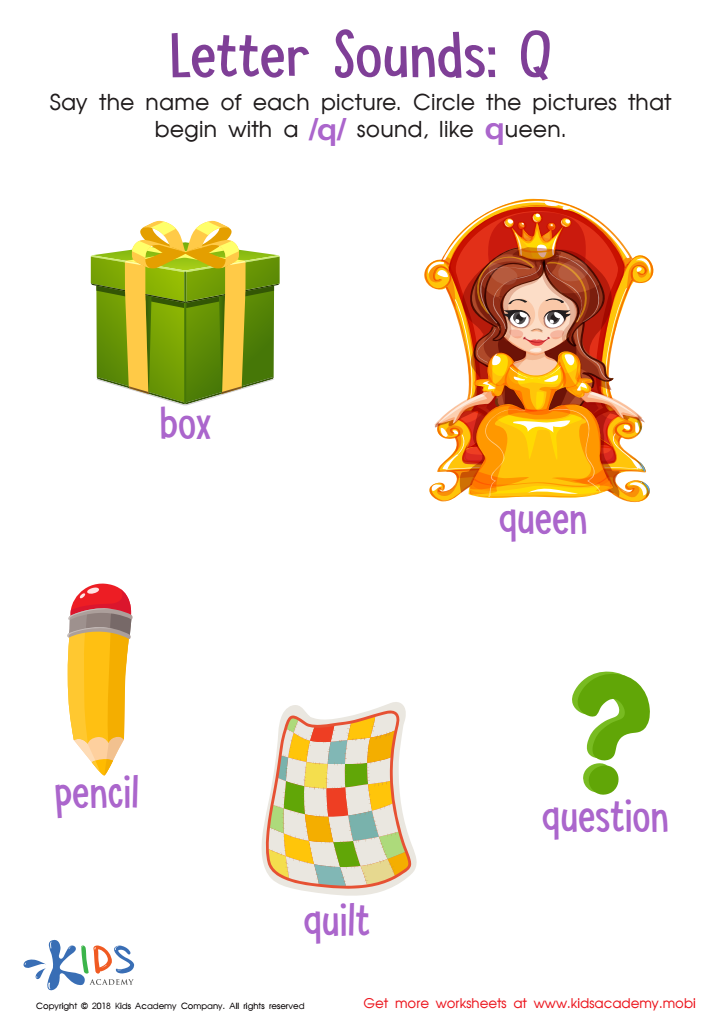

Letter Q Sounds Worksheet
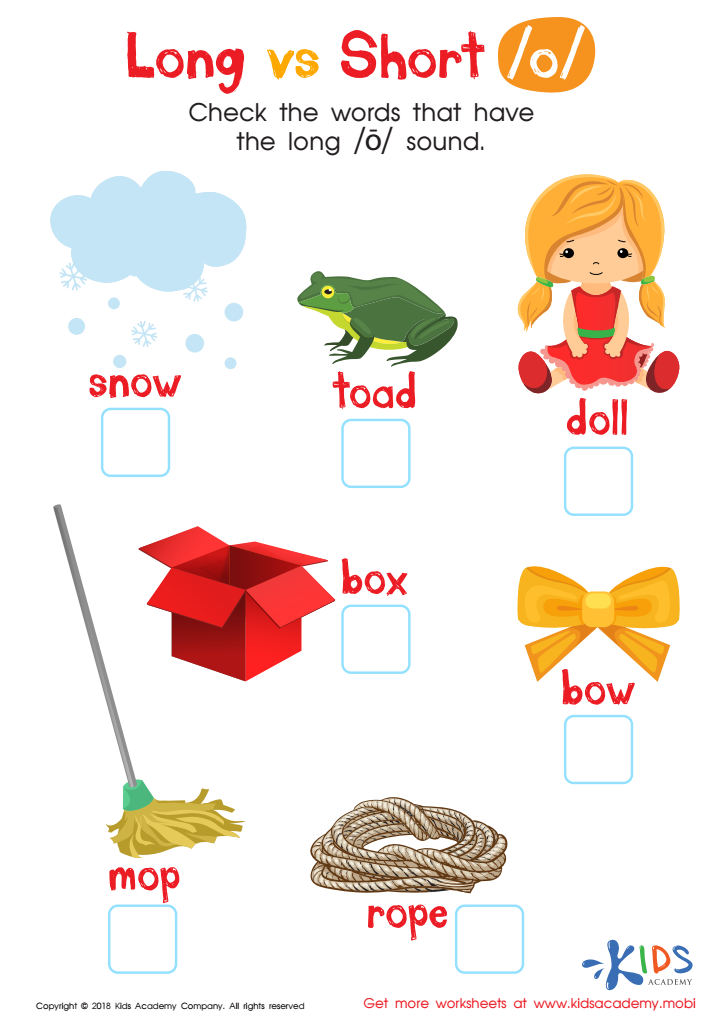

Long vs Short O Reading Worksheet
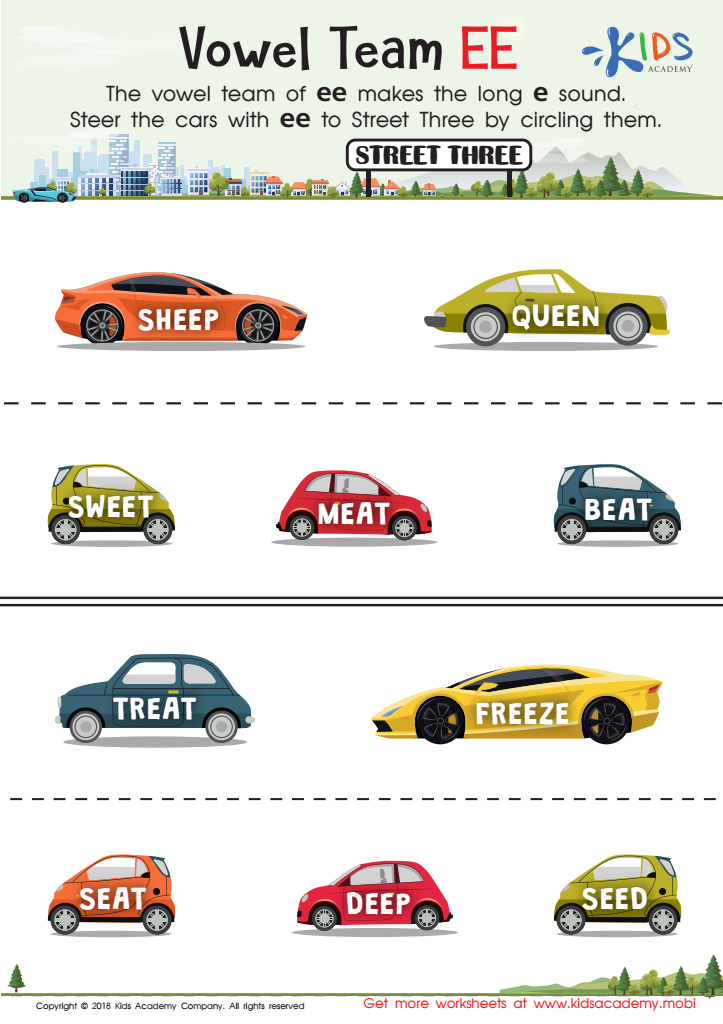

Vowel team ee Worksheet
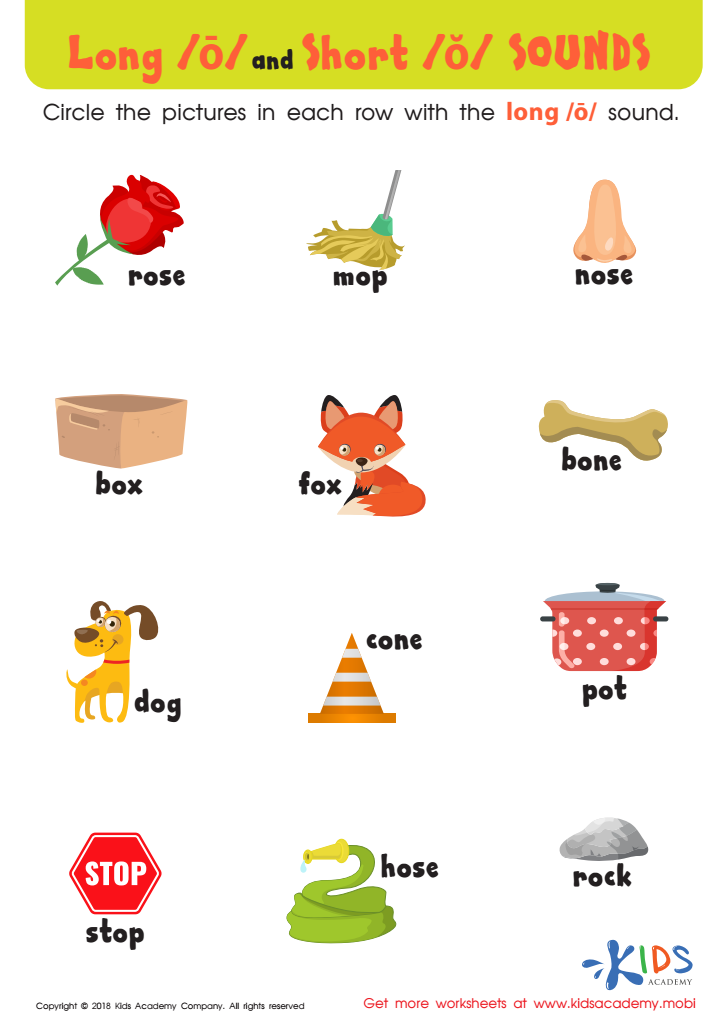

Reading: Long O and Short O Sounds Worksheet
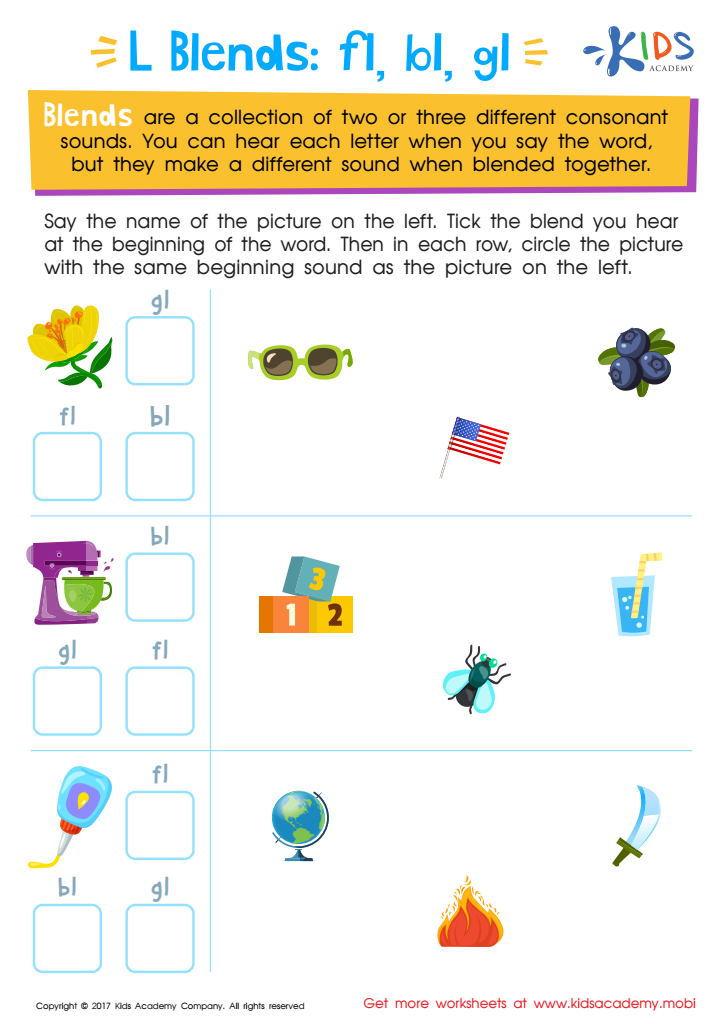

Blending Consonants: "Fl", "Bl" and "Gl" Printable
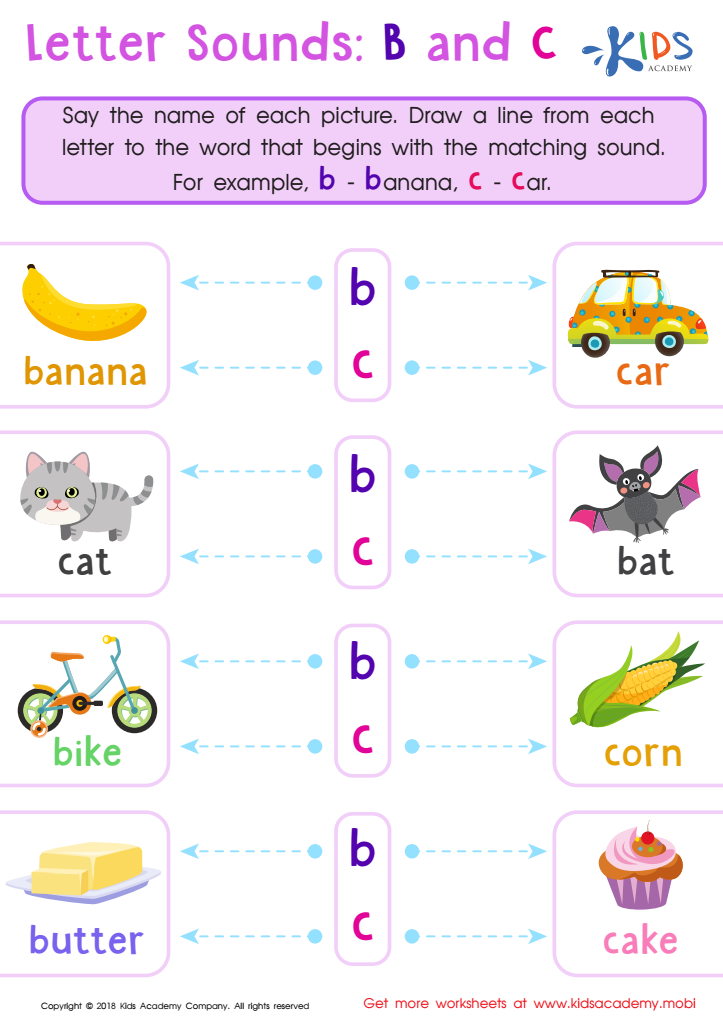

Letter B and C Sounds Worksheet
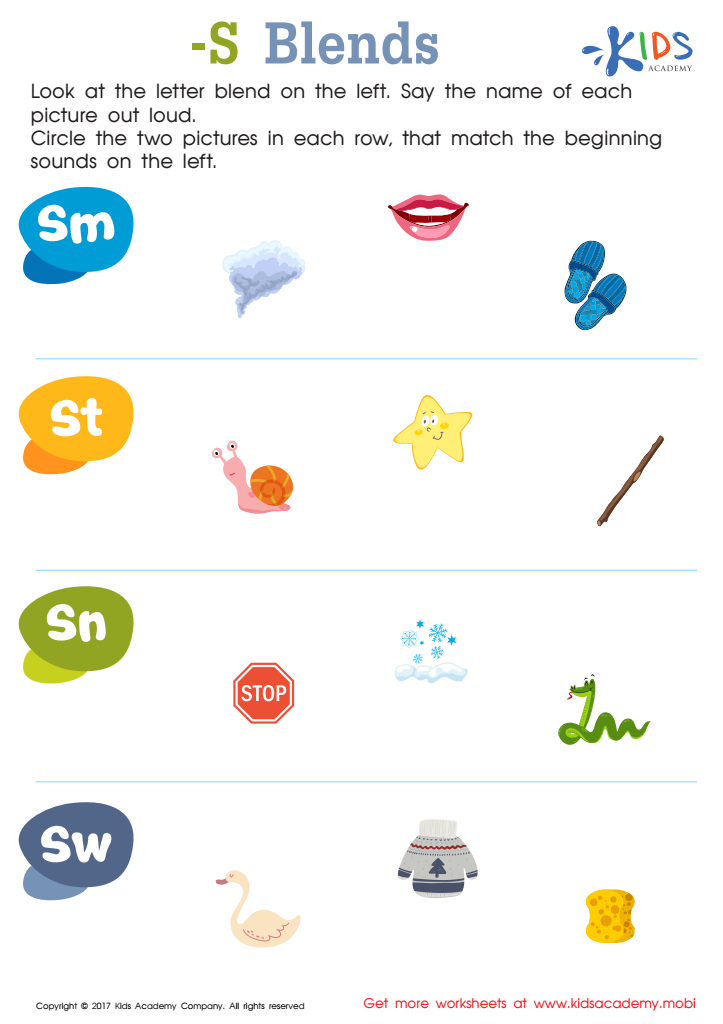

"s" Blends Spelling Printable
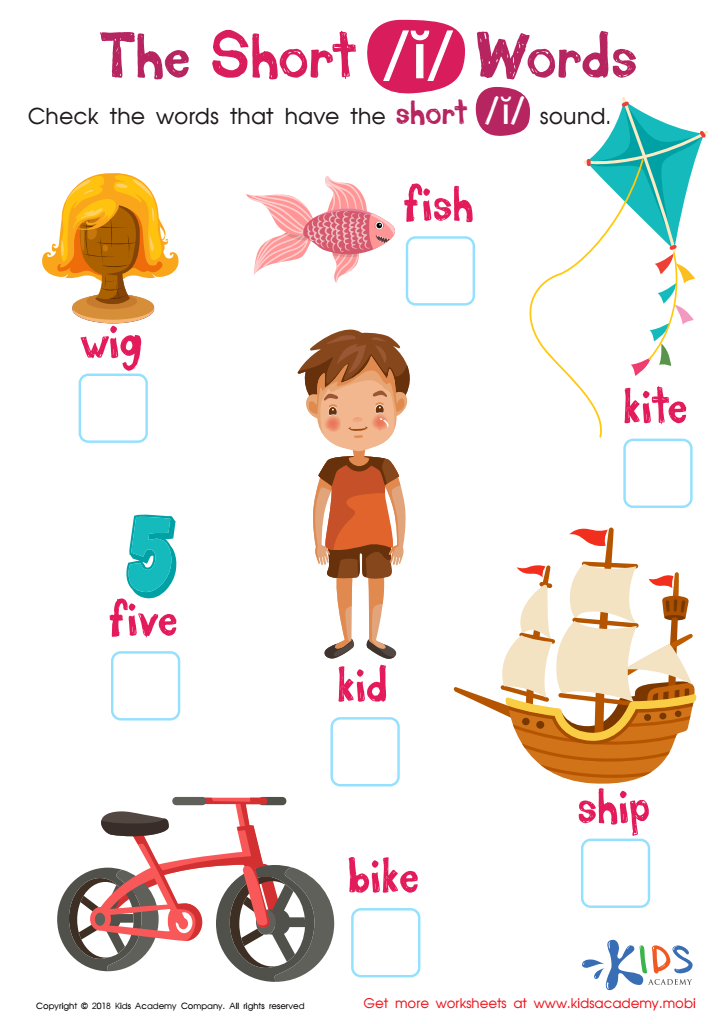

The Short I Words Reading Worksheet
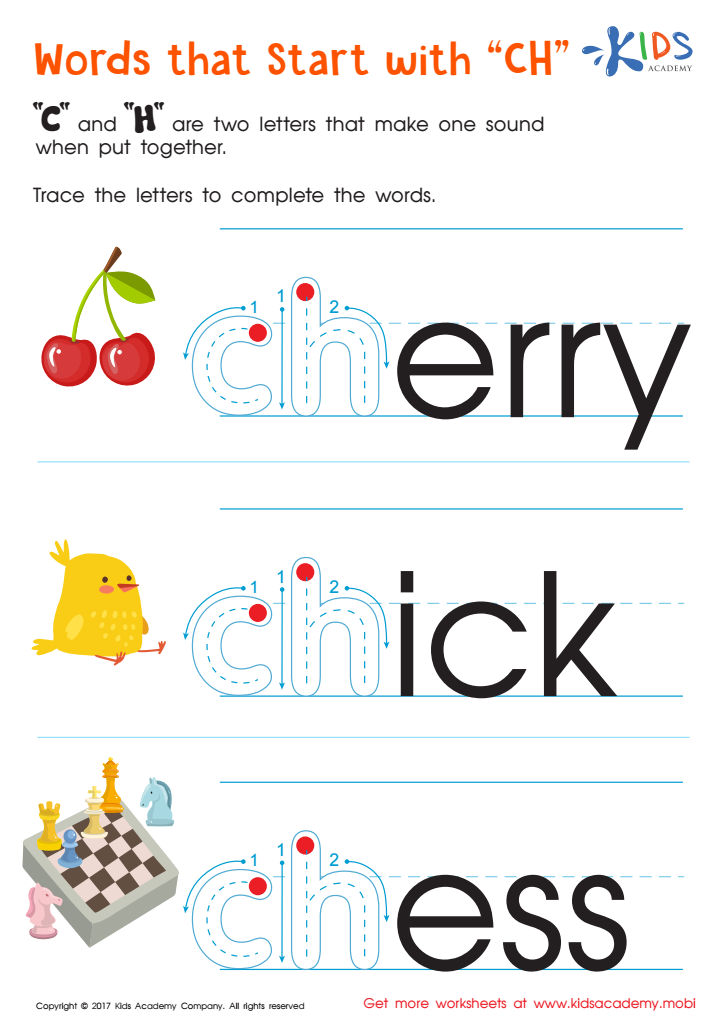

Words That Start with "ch" Spelling Worksheet


Let's Look for Blends Worksheet
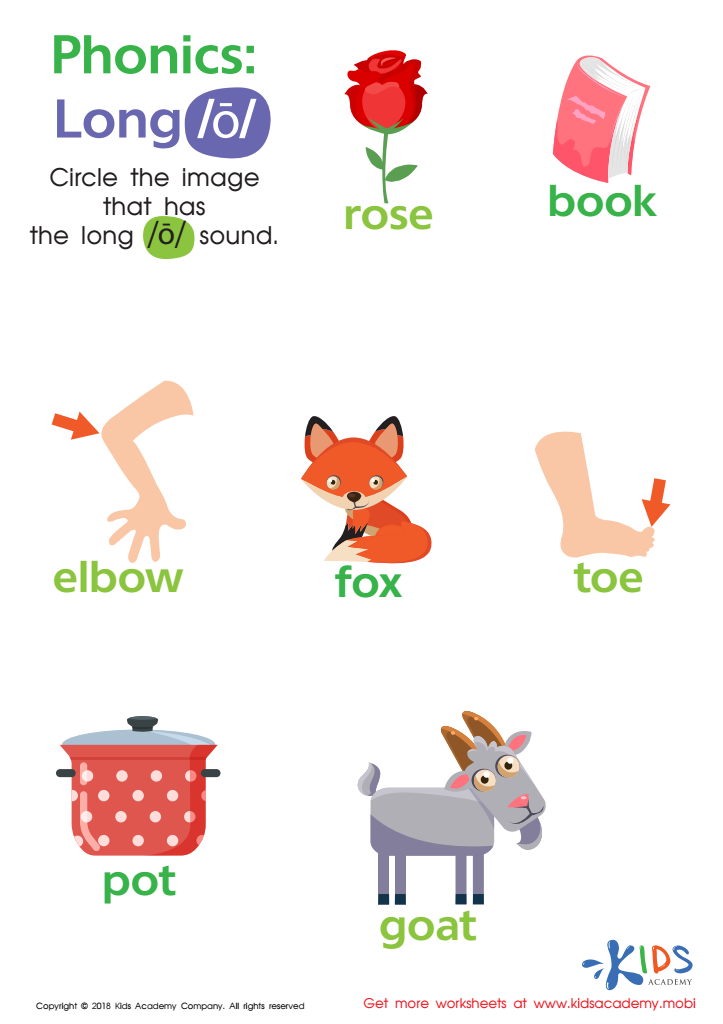

Phonics Long O Reading Worksheet
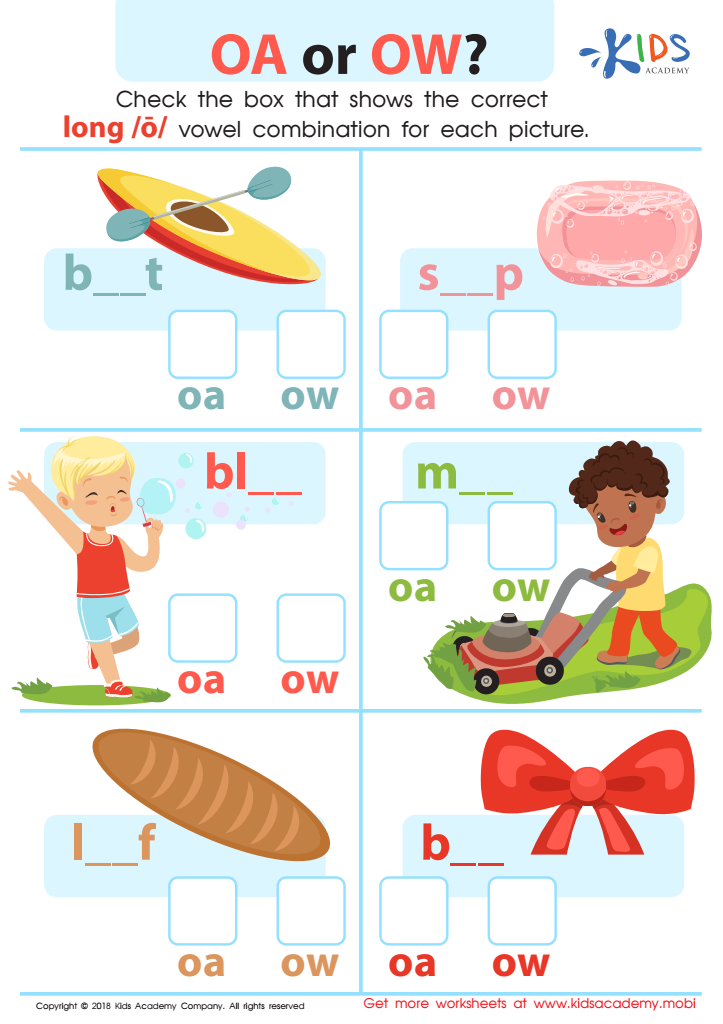

Reading: OA or OW Worksheet
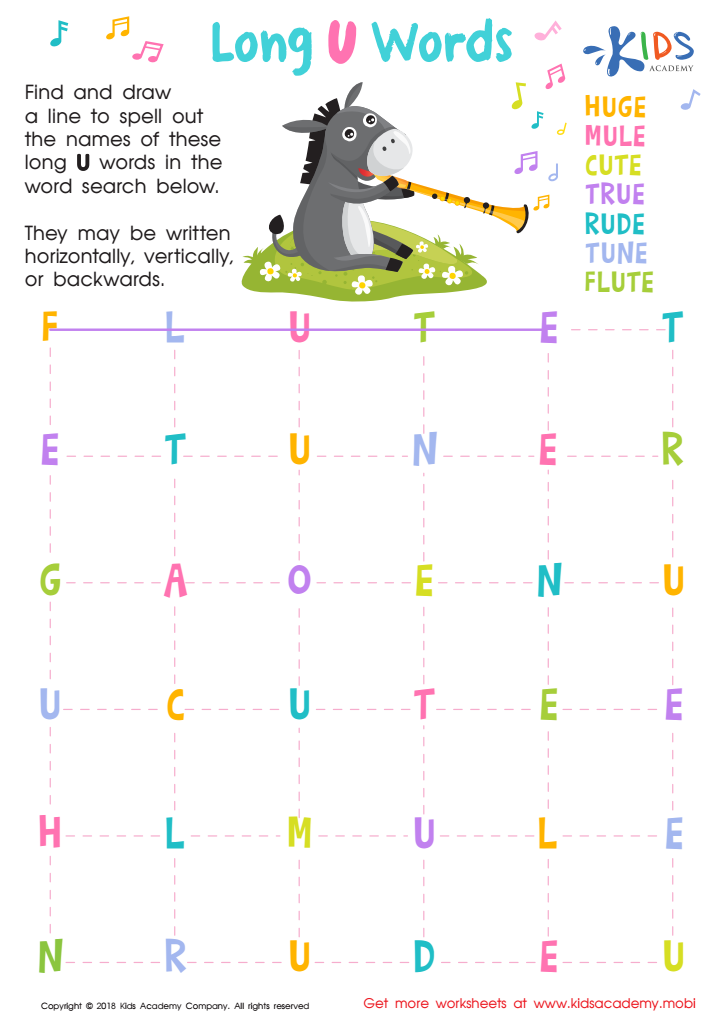

Long /u/ Words Worksheet
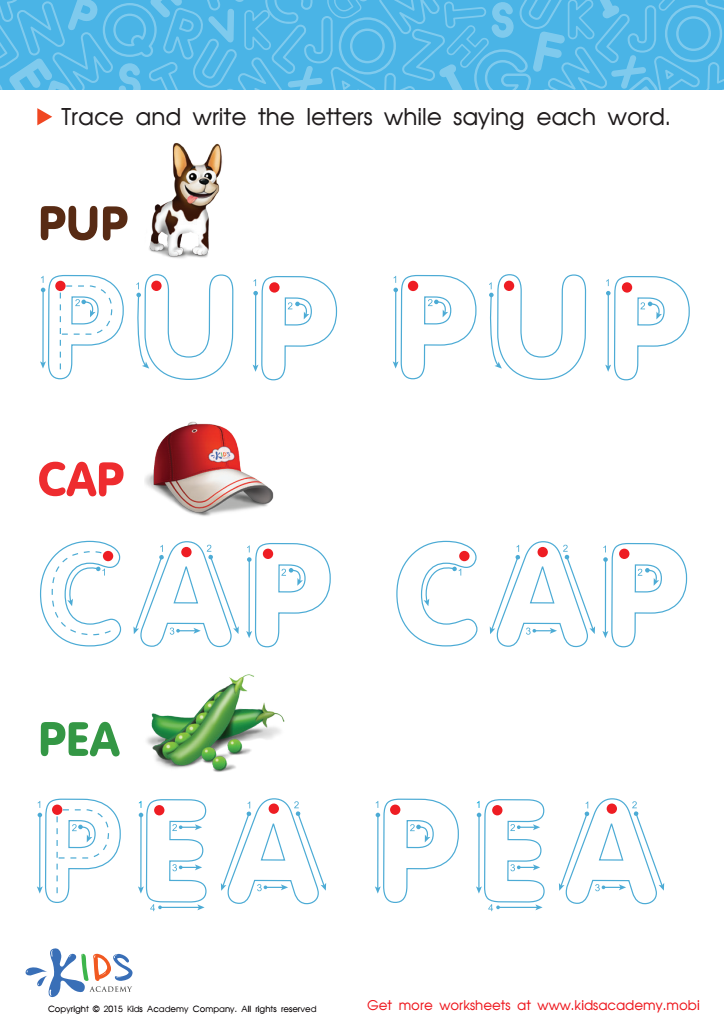

A Pup, a Cap and a Pea Spelling Worksheet
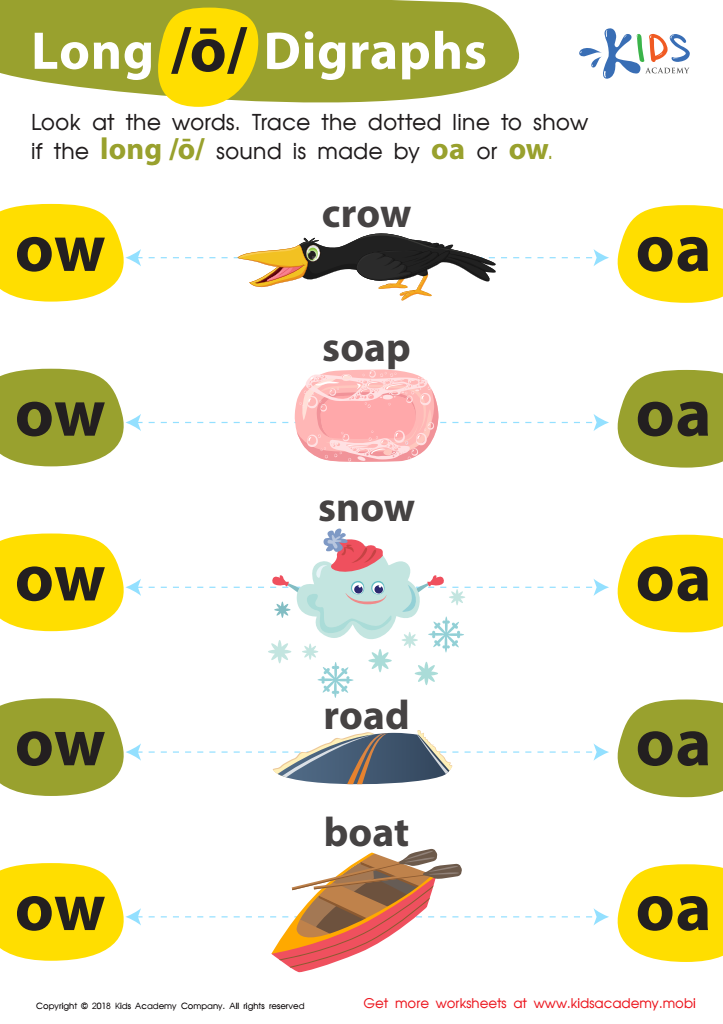

Reading: Long O Digraphs Worksheet
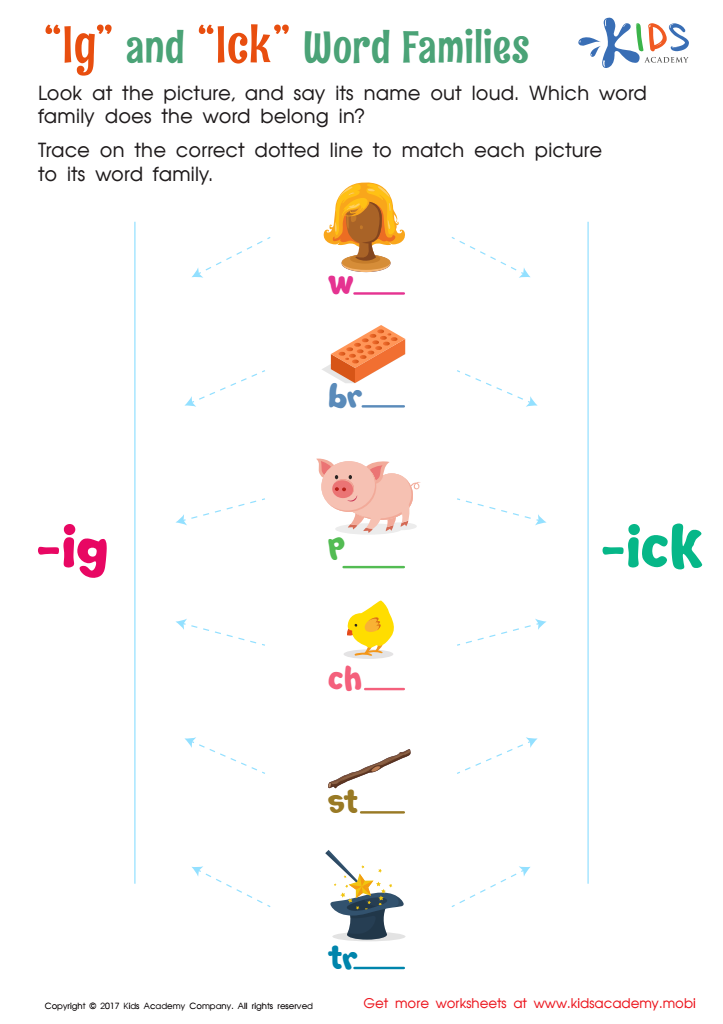

Words Families "ig" and "ick" Spelling Worksheet


Short Vowels /e/, /i/, and /u/ Worksheet
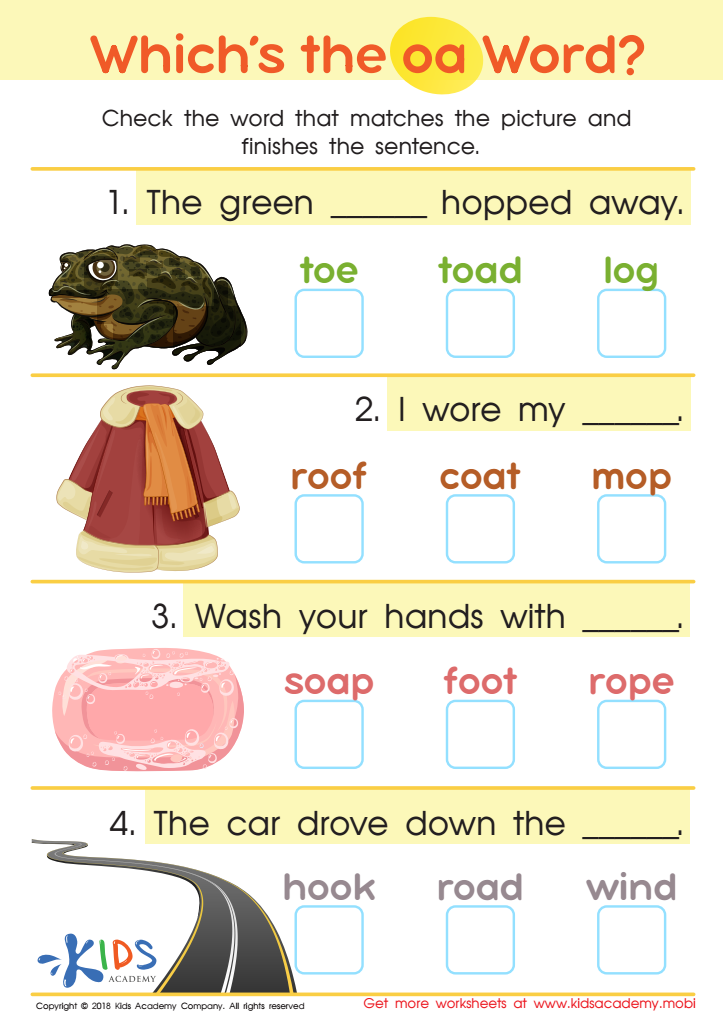

Which's the OA Word? Worksheet
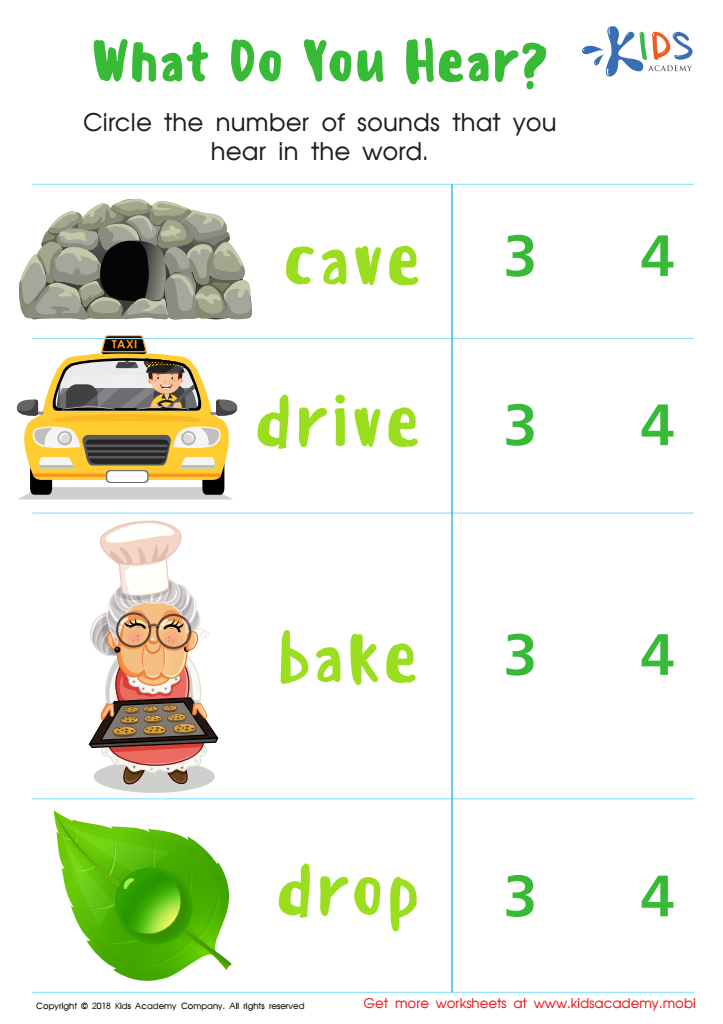

What Do You Hear? Worksheet
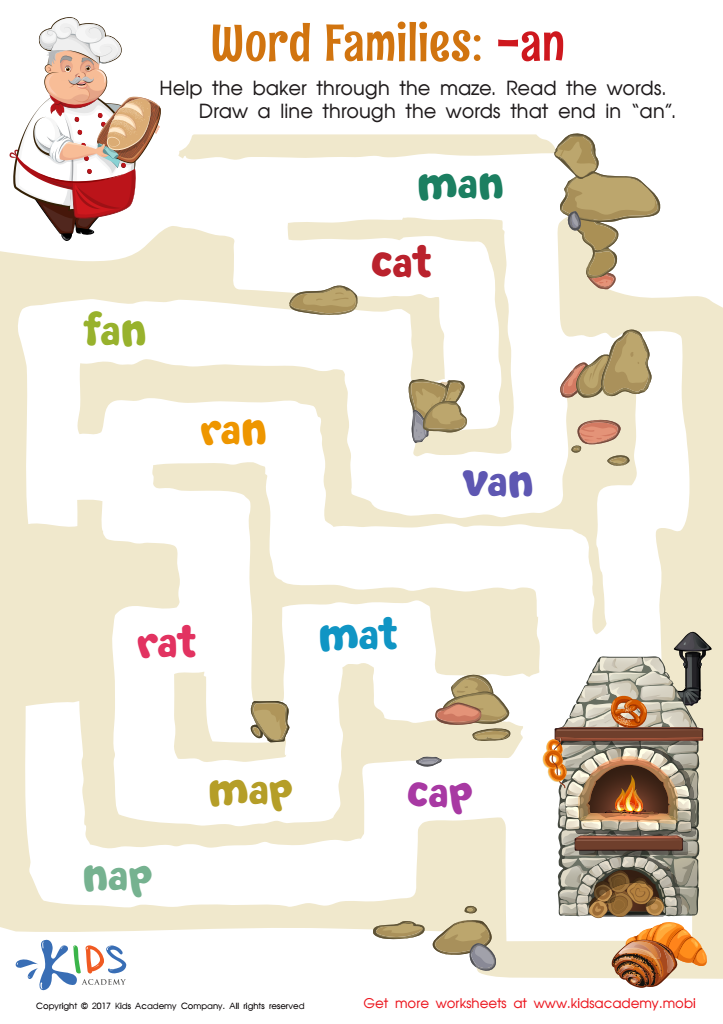

Words Families "an" Spelling Worksheet
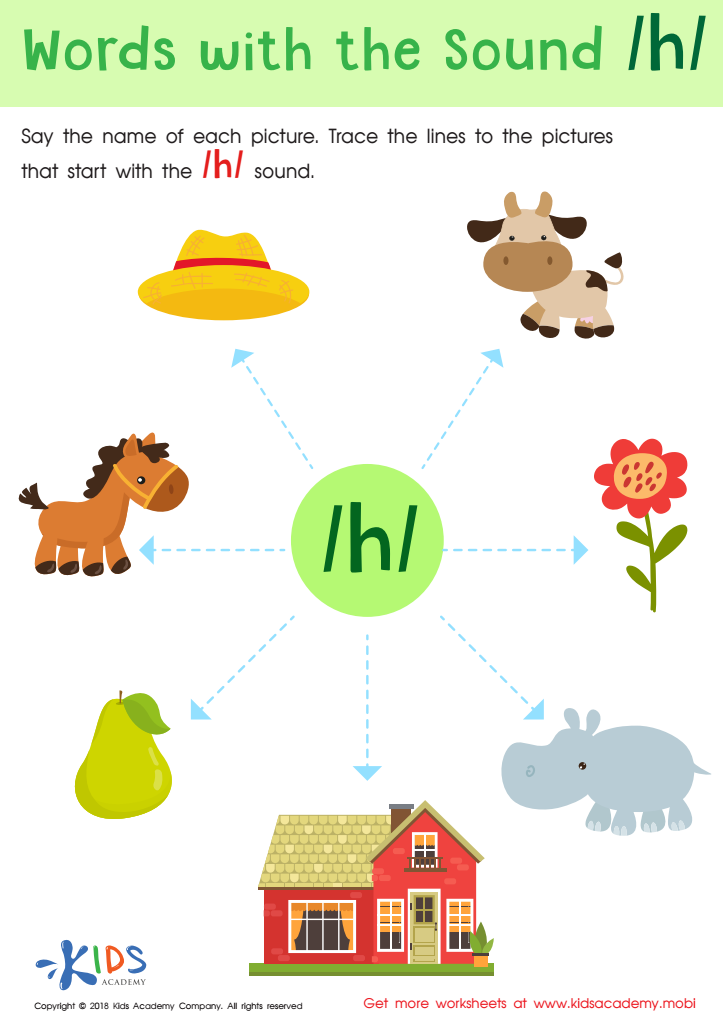

Words with sound h Reading Worksheet
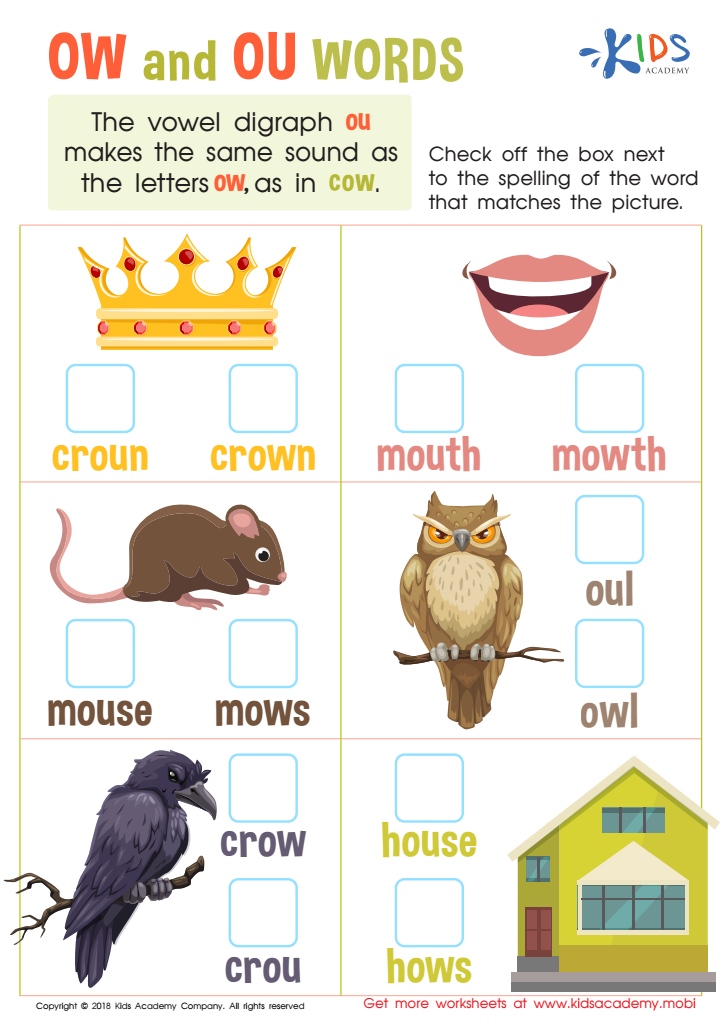

Reading: OW and OU Words Worksheet
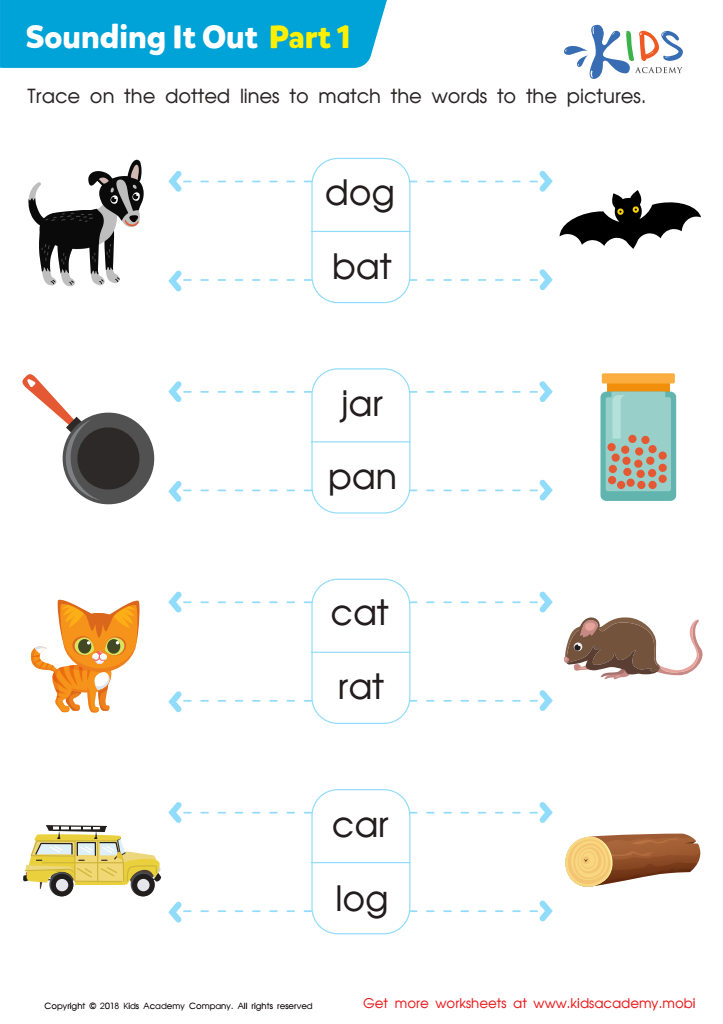

Sounding it Out: Part 1 Worksheet
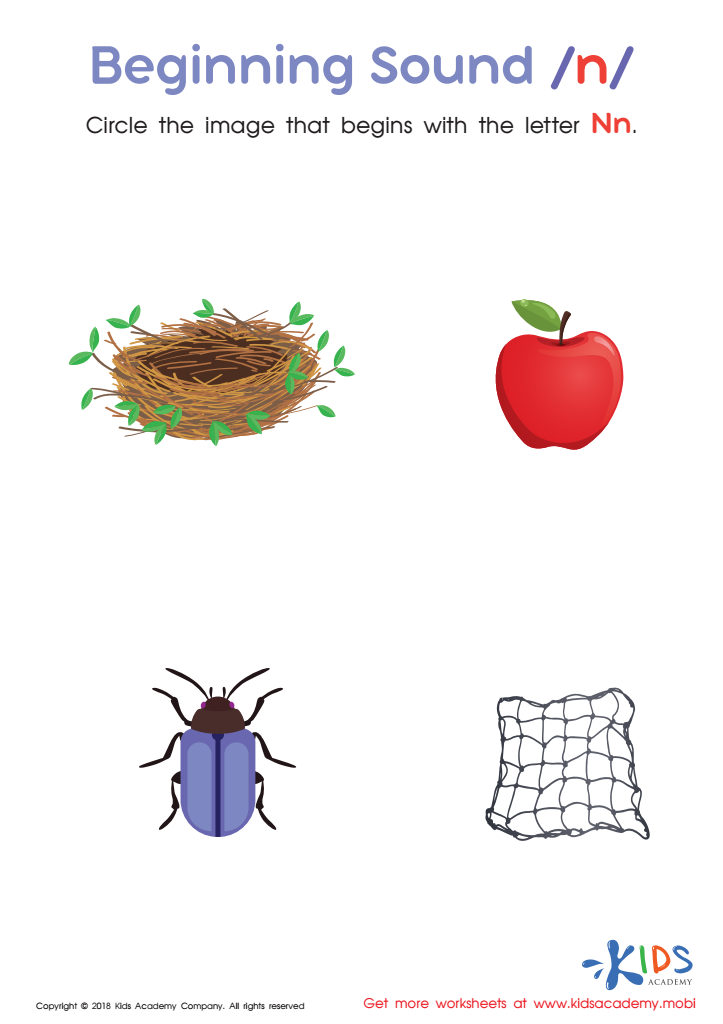

Beginning Sound «n» Worksheet
Phonics skills are a foundational element of early childhood literacy, crucial for children aged 3-7. Parents and teachers should be vigilant about normal phonics development because it directly affects a child's ability to read, write, and spell. Phonics involves the relationship between sounds and their corresponding letters, making it the building blocks of language.
When children are comfortable with phonics, they can decode new words, understand word structures, and enhance their pronunciation. This early competence fosters confidence, encouraging a positive attitude towards learning and reading. Research indicates that phonics-based reading instruction can have long-term benefits on children’s literacy skills, influencing their overall academic success.
If parents and teachers emphasize phonics skills from a young age, children are less likely to encounter reading difficulties later on. Struggles with reading can negatively impact self-esteem and limit a child's access to information, hampering overall educational progress. By ensuring proficiency in phonics, children also develop critical brain functions related to memory, auditory processing, and cognitive development.
In summary, attention to phonics skills in the early years equips children with essential tools for academic achievement and lifelong learning, highlighting why both parents and teachers should prioritize this in early education.
 Assign to My Students
Assign to My Students




.jpg)
.jpg)








